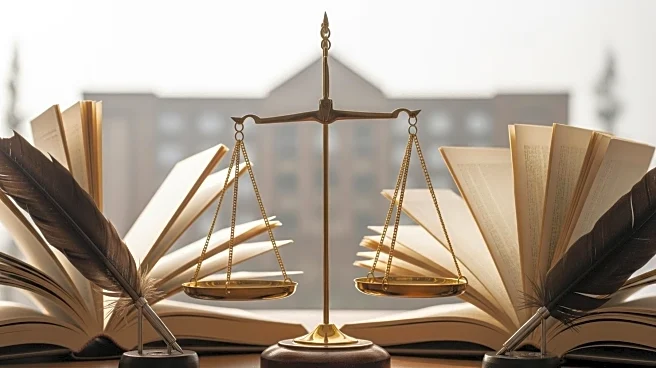What's Happening?
Texas Governor Greg Abbott has called for the expulsion of students from Texas State University and Texas Tech University following incidents where students allegedly mocked the death of conservative activist Charlie Kirk. Abbott, using the social media platform X, urged Texas State University to expel a student who appeared to mime Kirk's shooting at a vigil. The university later announced that the student in question was no longer enrolled. Similarly, Abbott praised Texas Tech University for allegedly expelling and arresting a student, although details of the arrest remain unclear. These actions have sparked a debate over free speech rights on campus, with critics arguing that the expulsions may infringe on constitutionally protected speech.
Why It's Important?
The actions taken by Governor Abbott highlight a growing tension between free speech rights and the enforcement of conduct codes at public universities. Abbott's intervention, particularly through social media, underscores the influence of political figures in shaping university policies and disciplinary actions. This situation raises concerns about the potential erosion of First Amendment rights, especially in public institutions that are required to uphold these rights. The broader implications include a possible chilling effect on free expression among students and faculty, as well as the risk of universities using conduct policies to suppress dissenting viewpoints under the guise of maintaining order.
What's Next?
The controversy is likely to continue as free speech advocates and legal experts scrutinize the actions of the universities and the governor. There may be legal challenges ahead, as some argue that the expulsions violate constitutional protections. Universities may face pressure to clarify their policies on student conduct and free speech, balancing the need for campus safety with the protection of individual rights. The situation could also prompt legislative or policy changes at the state level, as lawmakers and educational leaders respond to the public debate.
Beyond the Headlines
This incident reflects a broader cultural and political divide in the United States, where issues of free speech, political expression, and campus safety intersect. The case highlights the challenges universities face in navigating these complex issues, particularly in politically charged environments. It also raises questions about the role of social media in influencing public opinion and institutional decision-making, as well as the potential for political figures to leverage their platforms to impact educational policies.









